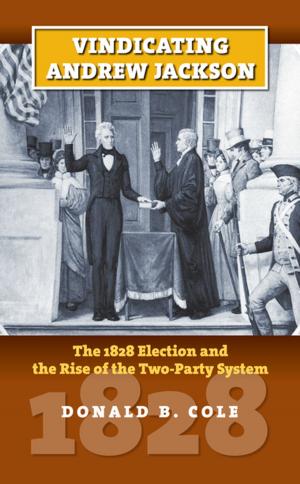Railroads and American Political Development
Infrastructure, Federalism, and State Building
Nonfiction, Reference & Language, Transportation, Railroads, History, Social & Cultural Studies, Political Science, Government| Author: | Zachary Callen | ISBN: | 9780700623013 |
| Publisher: | University Press of Kansas | Publication: | September 9, 2016 |
| Imprint: | University Press of Kansas | Language: | English |
| Author: | Zachary Callen |
| ISBN: | 9780700623013 |
| Publisher: | University Press of Kansas |
| Publication: | September 9, 2016 |
| Imprint: | University Press of Kansas |
| Language: | English |
America’s founders envisioned a federal government of limited and enumerated powers. What they could not envision, of course, was the vast and complex infrastructure that the growing nation would demand—a demand that became ever clearer as the power and importance of railroads emerged. The requirements of a nationwide rail network, it also became clear, far exceeded the resources of state and local government and private industry. The consequences, as seen in this book, amounted to state building from the ground up. In Railroads and American Political Development Zachary Callen tells the story of the federal government’s role in developing a national rail system—and the rail system’s role in expanding the power of the federal government. The book reveals how state building, so often attributed to an aggressive national government, can also result from local governments making demands on the national state—a dynamic that can still be seen at work every time the US Congress takes up a transportation bill.
Though many states invested in their local railroads, and many quite successfully, others were less willing or less capable—so rail development necessarily became a federal concern. Railroads and American Political Development shows how this led to the Land Grant Act of 1850, a crucial piece of legislation in the building of both the nation’s infrastructure and the American state. Chronicling how this previously local issue migrated to the federal state, and how federal action then altered American rail planning, the book offers a new perspective on the exact nature of federalism. In the case of rail development, we see how state governments factor into the American state building process, and how, in turn, the separation of powers at the federal level shaped that process. The result is a fresh view of the development of the American rail system, as well as a clearer picture of the pressures and political logic that have altered and expanded the reach of American federalism.
America’s founders envisioned a federal government of limited and enumerated powers. What they could not envision, of course, was the vast and complex infrastructure that the growing nation would demand—a demand that became ever clearer as the power and importance of railroads emerged. The requirements of a nationwide rail network, it also became clear, far exceeded the resources of state and local government and private industry. The consequences, as seen in this book, amounted to state building from the ground up. In Railroads and American Political Development Zachary Callen tells the story of the federal government’s role in developing a national rail system—and the rail system’s role in expanding the power of the federal government. The book reveals how state building, so often attributed to an aggressive national government, can also result from local governments making demands on the national state—a dynamic that can still be seen at work every time the US Congress takes up a transportation bill.
Though many states invested in their local railroads, and many quite successfully, others were less willing or less capable—so rail development necessarily became a federal concern. Railroads and American Political Development shows how this led to the Land Grant Act of 1850, a crucial piece of legislation in the building of both the nation’s infrastructure and the American state. Chronicling how this previously local issue migrated to the federal state, and how federal action then altered American rail planning, the book offers a new perspective on the exact nature of federalism. In the case of rail development, we see how state governments factor into the American state building process, and how, in turn, the separation of powers at the federal level shaped that process. The result is a fresh view of the development of the American rail system, as well as a clearer picture of the pressures and political logic that have altered and expanded the reach of American federalism.















